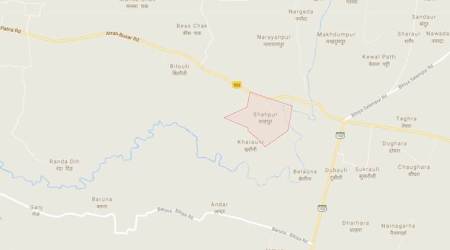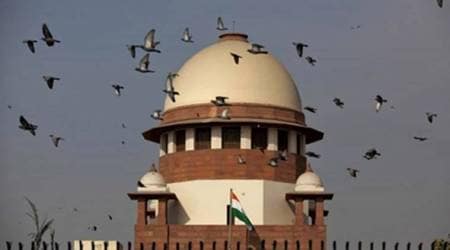 Counsel Indira Jaising, who appeared for Gandhi, said there were “66 cases of lynchings, some of which caused death… It has been happening across the country… they are not just random lynchings”. She attributed some of these to rumours of beef being transported or eaten. The victims were Dalits, women and children, she said. (File Photo)
Counsel Indira Jaising, who appeared for Gandhi, said there were “66 cases of lynchings, some of which caused death… It has been happening across the country… they are not just random lynchings”. She attributed some of these to rumours of beef being transported or eaten. The victims were Dalits, women and children, she said. (File Photo)
Stating that incidents of cow vigilantism “must stop”, the Supreme Court on Wednesday directed all state governments to appoint a senior police officer as the nodal officer in each district to effectively deal with such cases. “This must stop. The law is in place…Planned action is needed so that vigilantism does not grow in this sphere, not in any sphere for that matter,” said a Bench of Chief Justice of India Dipak Misra and Justices A M Khanwilkar and Amitava Roy.
The Bench also directed the chief secretaries and DGPs of states to file status reports on action taken to prevent such cases. “The officers shall ensure that vigilante groups don’t take the law into their hands… If any vigilantism takes place, the nodal officer shall take action to ensure that they are dealt with in accordance with the law,” said the Bench.
The court, however, declined to grant any immediate relief on the petitioners’ plea to ask the Centre to direct states, under Article 256 of the Constitution, to deal firmly with such incidents. But the Bench asked Additional Solicitor General Tushar Mehta to take instructions on the matter. The court was hearing a petition filed by Tushar Gandhi, seeking various reliefs, including a direction to the central and state governments to take steps to avoid such incidents.
Counsel Indira Jaising, who appeared for Gandhi, said there were “66 cases of lynchings, some of which caused death… It has been happening across the country… they are not just random lynchings”. She attributed some of these to rumours of beef being transported or eaten. The victims were Dalits, women and children, she said.
Jaising also referred to a statement made by Solicitor General Ranjit Kumar, wherein the Centre had said that it does not support such acts of vigilantism and that law and order was the concern of states.
While appreciating the Centre’s stand, she said there were “many instances of vigilantism even after this statement” and asked the court to issue directions to the Centre. “Something needs to be done to honour the statement recorded in court,” she said, adding that it was no longer a law and order issue. “The Solicitor General’s statement binds us. If there is an offence before and after the statements, FIR must be filed and the law must take its course. The SG had said that any crime of vigilantism has to be dealt with according to the law,” replied Mehta.
Jaising countered that she was not seeking registration of FIR, but prevention of such cases.
The court then spoke against people taking the law into their hands, and said it would pass interim directions to the states to see that such incidents of vigilantism do not take place. But Jaising pressed for an order asking the Centre to issue directions under Article 256. “Why states can’t take action,” the CJI then asked. “They should,” replied Mehta.
Senior Counsel Colin Gonsalves, who has filed an intervention application in the case, said the incidents were recurring because “leaders of his (Mehta’s) groups” were making statements promoting it.
Responding to this, the ASG said: “I take strict objection to this… this is now a politically motivated petition…this is for publicity.” Gonsalves said Haryana Chief Minister M K Khattar had said his government would withdraw cases against cow vigilantes.
As the arguments continued, Justice Khanwilkar sought to know why activists had not cared to file any petition so far regarding 200 animals that were found slaughtered in Bihar a few days ago, and added that there are always two sides to an issue. “Yes, there are always two sides,” added Mehta.
Gonsalves said the politicians should be prosecuted for “hate speech”, but the court said there was no law for this. “This is what we are examining in the Azam Khan case (which has been referred to a Constitution Bench,” said the CJI.
Mehta, who represented Haryana, Maharashtra and Rajasthan governments, said the states would undertake to appoint district nodal officers, as ordered by the court. The court gave the states one week’s time to file affidavits, informing it about the nomination of nodal officers.

